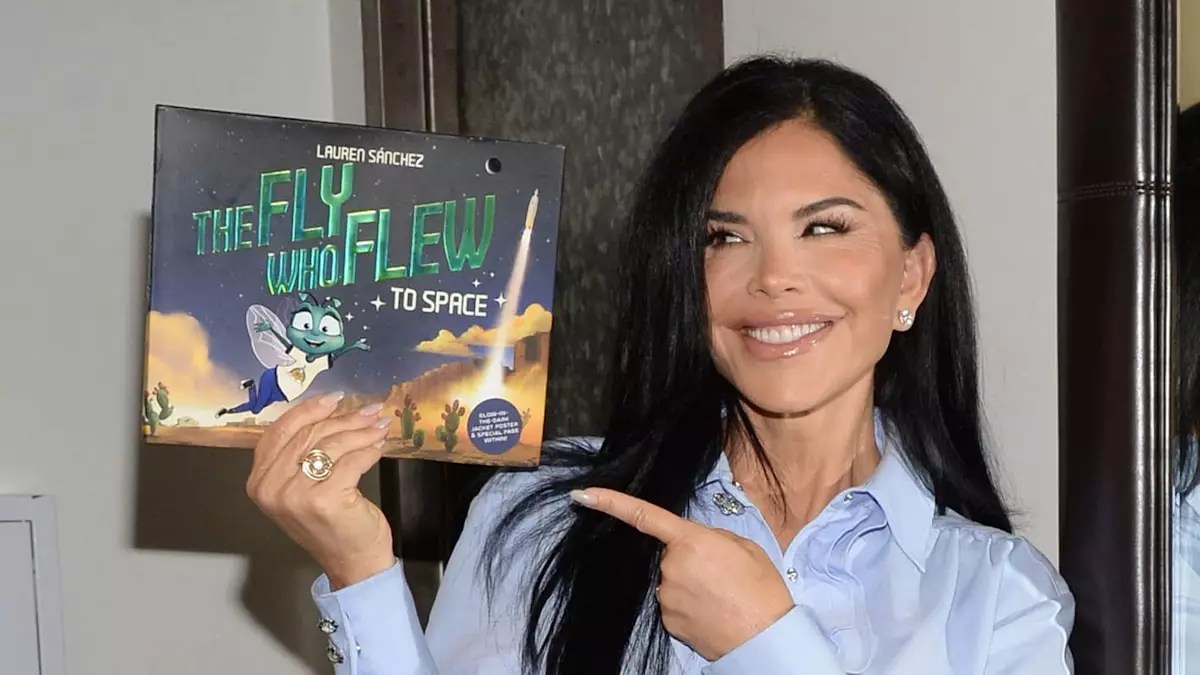In an unexpected turn of events, Lauren Sanchez, known for her high-profile relationship with Amazon founder Jeff Bezos, finds herself embroiled in a legal controversy that could pose a serious threat to her burgeoning literary career. Alanna Zabel, Sanchez’s former yoga instructor, has taken legal action against her, claiming “betrayal and theft” over presumed similarities between their respective children’s books. Zabel alleges that during their professional relationship from 2007 to 2010, Sanchez expressed admiration for her work, sometimes blurring the lines between inspiration and appropriation.
The crux of Zabel’s lawsuit is her assertion that Sanchez’s recent book, “A Fly Who Flew to Space,” bears significant resemblance—over 60%—to Zabel’s previously conceived project, “Dharma Kitty Goes to Mars.” Zabel claims she had reached out to Sanchez in 2022 to propose collaboration on this children’s book idea, only to see Sanchez publish her own version shortly thereafter. This accusation not only speaks to potential copyright infringement but also delves into more personal territory, as Zabel recounts a pattern of jealousy she perceived in their past interactions.
While Zabel articulates feelings of betrayal, her reference to “outrageous acts of jealousy” lacks a specific description, raising questions about the nature of their relationship. What may have been a professional rivalry based on admiration transformed into a legal tussle driven by emotions. Zabel claims that Sanchez has consistently sought to mimic her persona as a “hardworking and independent” yoga instructor. Whether this rivalry stemmed from creative influences or deeper emotional undercurrents merits further exploration. The complexity of human relationships, especially in creative fields, can often lead to misunderstandings and bitter disputes.
The hidden dynamics between mentor and protégé can sometimes darken with jealousy, particularly when one party believes their hard work is being stolen, albeit unintentionally. The lawsuit suggests that Zabel feels her artistic integrity has been compromised. Although it lacks concrete examples of Sanchez’s supposed jealousy, it raises important questions regarding intellectual property rights as they pertain to artistry and inspiration.
Despite the turmoil surrounding her, Sanchez has been publically emotional about her literary endeavors, discussing her journey through the lens of her own experiences with dyslexia. During a promotional event for “A Fly Who Flew to Space,” she recounted a poignant moment involving her son and a transformative college instructor who helped diagnose her learning disability. This vulnerability adds layers to Sanchez’s character; it sets a background against which her book can be perceived as a personal narrative of resilience rather than merely a children’s tale.
Sanchez’s book aims to address themes of curiosity and acceptance, focusing on a little fly who is grappling with her own intellectual challenges. The duality inherent in this situation—her genuine efforts to inspire young readers and the accusations against her—creates a compelling narrative tension. One cannot help but wonder whether this artistic connection with young readers can be overshadowed by the legal disputes that have surfaced.
As the lawsuit gains traction, it illustrates broader discussions about ownership in creative industries. Intellectual property laws are designed to protect original works from unauthorized use, but defining the line between inspiration and theft is often murky. The legal framework in place must accommodate the nuances of creativity; ideas are fluid, and the collaborative spirit can easily blur boundaries.
Zabel’s claims not only threaten Sanchez’s reputation and her literary credibility, but they also evoke sympathy for both sides amidst a backdrop of professional jealousy. For budding authors and established creators alike, this case serves as a critical examination of how relationships, both personal and professional, can lead to damaging outcomes.
Ultimately, this saga of Sanchez and Zabel raises essential questions about artistic authenticity, the consequences of emotional fractures, and the complex interplay between admiration and rivalry. As the legal battle unfolds, the conversation continues, fostering deeper reflections on creativity and the struggles faced by those who brave the literary world.


Leave a Reply